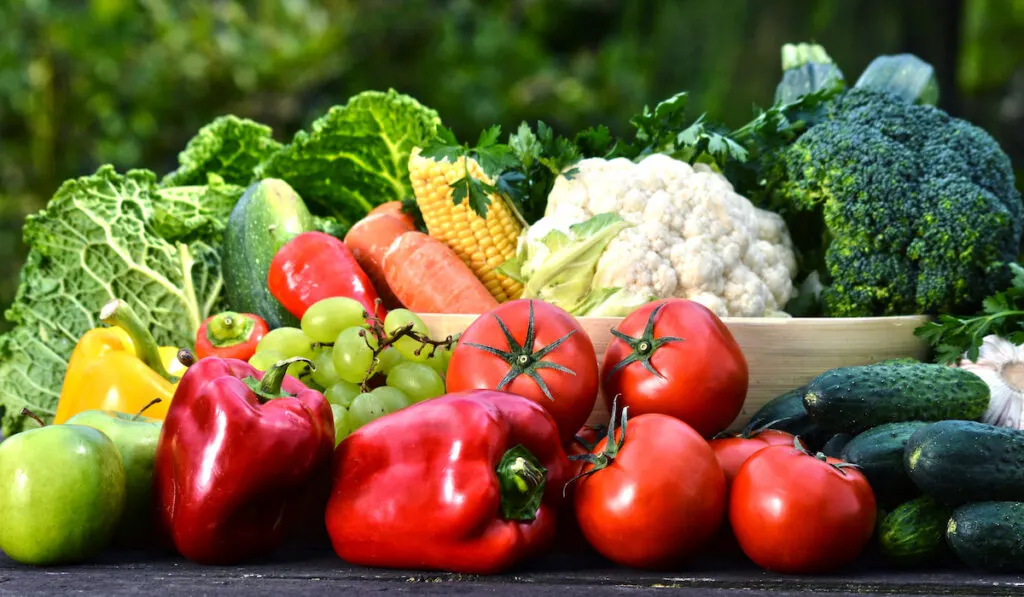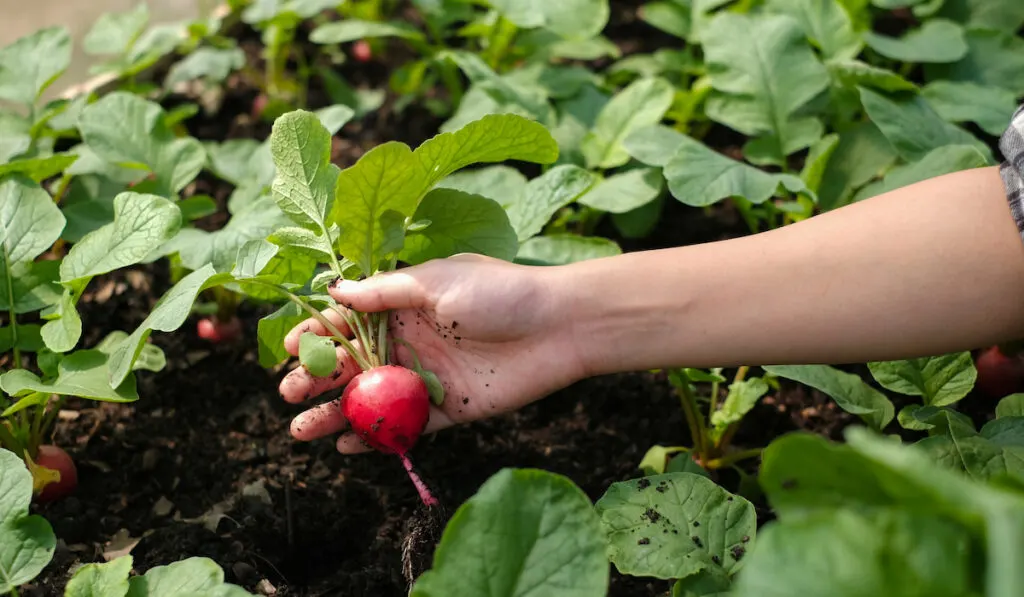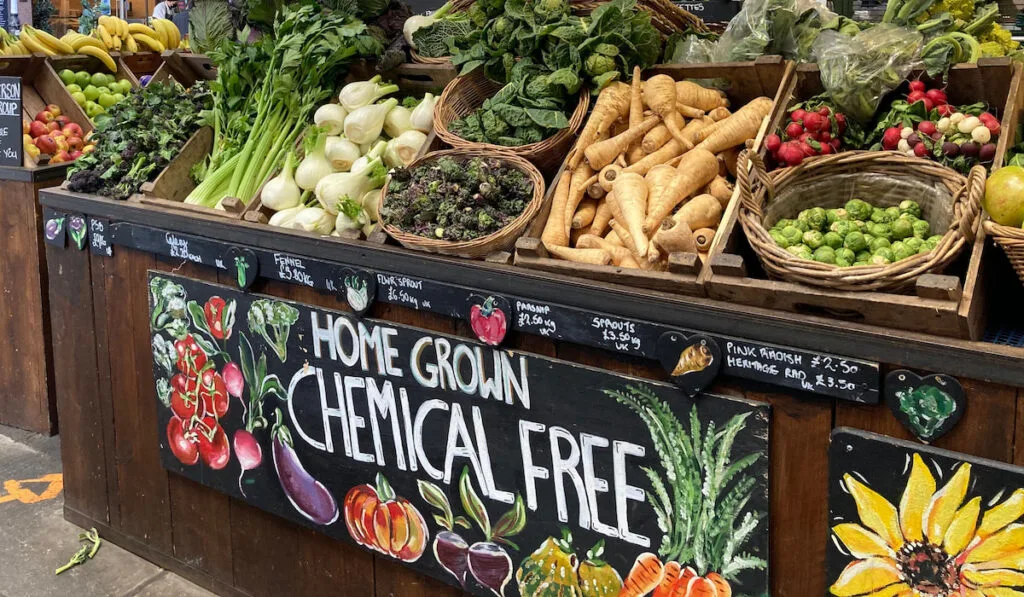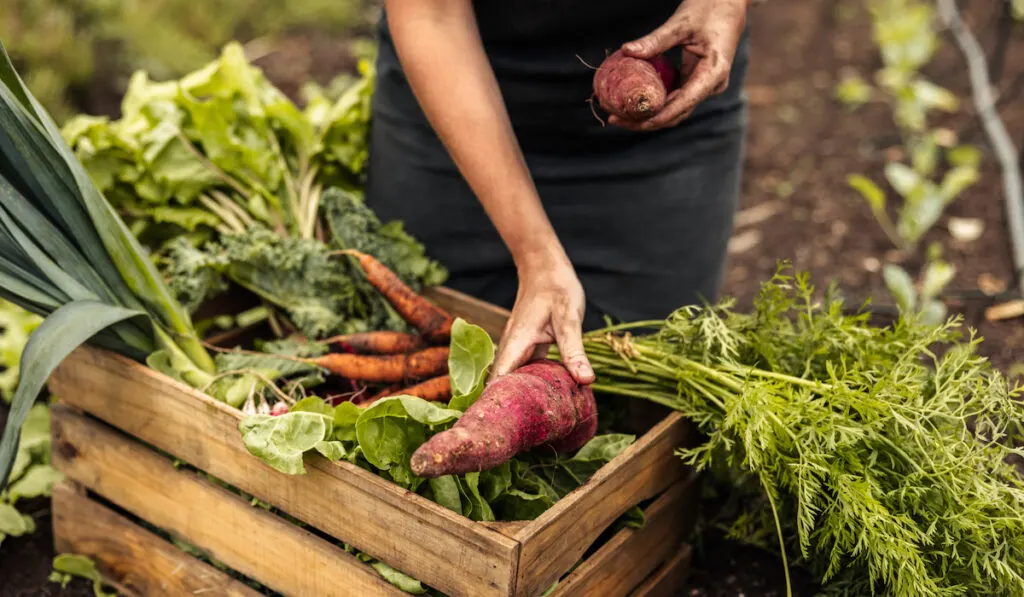Perhaps you recently have heard of organic farming, or you knew about it a long time ago but only now it caught your interest. What is organic farming? What good does it bring to you, to the environment, or to the community?
Organic farming has numerous advantages, including production of healthier and better-tasting products. This farming method is eco-friendly, and has proven beneficial to the environment in various ways.
There are many advantages of organic farming, and we’re going to tackle it all in this article.
Table of Contents
What is organic farming?
Organic farming is a farming method of growing and nurturing crops, plants, and animals in natural methods. In organic farming, no synthetic-based chemical fertilizers, pesticides, antibiotics, and herbicides are used in the process of growing.

Instead, organic farming utilizes biological materials and principles to include crop rotation, compost, green manure, organic waste, mineral and rock additives, and biological pest control to produce crops and poultry while minimizing waste and pollution to the environment.
In some cases, organic farming may involve use of fertilizers and pesticides so long as they are considered natural and organic.
17 Advantages of Organic Farming
1. Organic farming provides healthier products
Because organic foods are made by using sustainable methods which improves the soil’s composition, the end product has greater amounts of nutrients including vitamins, minerals, iron, phosphorus, magnesium, enzymes, and other micronutrients that are essential to a person’s health.
This is also applicable to poultry and livestock products. Research has found that organic whole milk has higher concentrations of omega-3 fatty acids when compared to the milk acquired from commercially raised cows.
2. Organic farming results in richer, more natural, and better-tasting products
Farmers who practice organic farming value quality over quantity. Because of the more nutritious and well-balanced soil, the crops produced from organic farming do not only have more nutrients, but they also have a better and more natural taste.
A product’s sugar content, which contributes to its taste, is measured through Brix analysis – a traditional method of testing the quality of food and beverages, such as wine, fruit juice, honey, maple syrup, carbonated beverage and sugar.
3. Organic farming yields poison and chemical-free products
Because organic farming uses natural fertilizers and substances to grow crops and other products, it is free from harmful chemicals, pesticides, and insecticides which, according to studies, cause health issues such as cancer.
Since organic farming does not use hazardous chemicals, the risk of getting serious health concerns is greatly reduced.

4. Goods from organic farming have longer shelf life
Compared to conventional crops, organic products have better metabolic and structural integrity in their cellular composition.
For this reason, organic products are safe to store for a longer time.
5. Organic farming promotes healthier animals
Animals under conventional farming are fed antibiotics to increase their resistance and improve their health. But because organic farming does not utilize such methods, animals grow to be naturally healthy.
Antibiotics are only used in animals if they are sick.
6. Organic farming is eco-friendly
Conventional agriculture is very dependent on synthetic substances. These substances use a high amount of energy from manufacturers. Meanwhile, organic farming produces less greenhouse gas emissions, thus making it more eco-friendly than conventional farming.
According to the Rodale Institute Farming Systems Trial, healthy organic farming greatly reduces carbon dioxide which helps slow climate change.
In addition, organic farming also helps reduce contamination in soil and water resources known to greatly affect humans, animals, and plants.
7. Organic farming combats erosion
Organic farming builds healthier and more nutritious soil. For this reason, the soil from organic farming is stronger and more resistant to serious soil and land issues, including erosion.
A study was conducted comparing organic with chemically-treated wheat fields. The result was that the organically-treated field had eight additional inches of topsoil compared to the chemically-treated one. In addition, it only had one-third the erosion loss.
Soil erosion can have serious negative effects not only on the land, but also on the supply of food, as well as to humans. What combats this is the utilization of organic farming.

8. Organic farming is dynamic
Organic farming can be practiced in almost any geographic location, if not all.
In organic farming, the carbon is stored within the soil, thus reducing energy needed which leads to minimized need for fossil fuel-based products.
Regardless of how long a growing season is, organic farming ensures that natural production levels are always available.
9. Organic farming helps you stay away from Genetically Modified (GMO) foods
Genetically modified foods do not bring people and the environment any benefits. Genetically Modified Organisms are widely used by chemical companies in order to increase pesticide sales and acquire control on seed production, thus preventing seed saving by the farmers.
Eventually, this will cause large scale monoculture, superweeds, and superpests which cause health risks for both humans and animals.
However, in organic farming, GMOs are strictly forbidden. Instead, natural breeding techniques are used to create strong and sustainable products.
10. Organic farming practices more efficient use of resources
One of the principles of organic farming is to recycle available resources.
Instead of importing and buying hazardous pesticides and chemical fertilizers from other countries, organic farming uses natural resources and methods, such as crop rotation and use of compost, animal manure, and natural byproducts to improve the quality of soil and products.

11. Organic farming gives direct support to farmers
Patronizing organic products from farmers ensures a cost-effective future since it helps organic farmers to be recognized by the government.
For a long time now, conventional methods of farming have availed excellent subsidies and tax costs from governments.
By helping organic farmers through purchasing their products, the government will be able to recognize them, thus providing them with organic farming technologies, which we mentioned has great benefits, including reducing the risk of developing cancer.
12. Organic farming helps prevent the existence of antibiotics and drugs in animal products
Conventional products are highly packed with chemicals and toxins mainly because drugs, growth hormones, antibiotics, and other substances are injected into the animals under this farming method.
As a matter of fact, an American journal statistic stated that over 90% of chemicals that the population ingest come from meat tissue and dairy products.
These dangerous chemicals, once consumed by humans, contribute to an individual’s health complications, such as genetic problems, tumor development, and high risk of cancer.
By buying organic products, not only do we get healthier and tastier food, but it also helps animals to grow healthy in a natural way.

13. Organic farming is growing in demand
Organic farming can provide people with extra profit since the demand for organic food is increasing faster than the supply. For example, top countries such as the United Kingdom and the United States of America need to import organic food from other countries.
14. Organic farming has lower cost of external expenses
Although it is more labor-intensive, organic farming costs less than conventional farming because it does not use expensive and hazardous chemicals to grow crops and raise animals.
In addition, these chemicals also have bad side effects to the environment. One example is the alarming decline in bee population. It is mainly because of the heavy use of toxic pesticides that can linger in the environment for 1,000 days.
These toxins have proven to have a very damaging effect to the bee and other insect population.
15. Organic farming provides a healthier working environment for the farmers
Unlike conventional farmers who are always exposed to various chemicals, organic farmers do not get exposed to such dangerous toxins since they are able to manage their fields in a healthier and more cost-effective way.
As mentioned, chemical pesticides give us a higher risk of developing serious health issues, such as neurological diseases.
The more exposed we are to these chemicals, the higher the risk of developing such health concerns. It may start from a simple headache, then develop into migraines. A more critical situation is suffering from memory loss.
16. Products of organic farming have undergone strict high-quality checks
For a product to be identified as organic, it must first undergo quality checks, such as identifying the steps and process of how it was produced.
For this reason, you are sure that the organic products sold at your local supermarket are real organic foods.

17. Organic farming creates room for creativity for farmers
Because the use of commercial insecticides, pesticides, and other chemicals are forbidden in organic farming, farmers must think of other ways to provide fertilizers for their crops.
Several methods include crop rotation, green manure, composting, and worm farming. These strategies are proven to be effective in creating natural fertilizers for crops to grow well.
Now that we know the advantages of organic farming, let’s take a look at some of its disadvantages.
5 Disadvantages of Organic Farming
1. The time it consumes to convert into organic farming
Generally, it takes three years along with extensive inspection in order to prove that the farm is meeting and following the organic standards.
During this process, the farmer is not able to sell his products as organic which means that they temporarily have a higher cost of doing business.
2. Organic farming is more labor intensive
Because organic farming does not utilize harmful chemicals, it tends to be more labor intensive, such as weeding by hand. It also has less dense strategies of animal farming. Compared to conventional methods, organic farming requires greater work to produce organic products.
Although organic farmers may still use organic pesticides to reduce workload, it still requires greater strength for an average farmer to do all the work in the field since cultivation techniques must be done frequently.
The good thing is that new ideas and studies in permaculture and biodynamics are working to counter this drawback of negative farming.

3. Organic products need more careful handling than the conventional ones
Since conventional products use wax and other preservatives to maintain its quality during the shipping process, it is easier to handle compared to organic products since the latter do not receive such substances.
Therefore, shipping industries must take extra care when handling organic products. A single delay or mishandle may cause these products to not pass the quality standards of the market.
4. Supermarkets gain more profit than the organic farmers
Although organic products are sold at a much higher price than the conventional ones, it’s actually the supermarket who gains higher profit and not the farmers.
Usually, the profit margin of supermarkets on organic products is 96% higher compared to conventional ones.
5. The possibility of higher loss of crops
Organic crops can be lost due to pests and diseases which cannot be dealt with by organic methods. This results in a decline in crop yields.
In organic farming, crop yields can be as much as 20 percent less than conventional farming. For this reason, there exists some concerns that if most farm fields, if not all, have been converted into organic, there will be lesser food supply and increase in prices of commodities.
Conclusion
And that wraps up today’s very informative article about organic farming.
You can help our organic farmers simply by sharing this article because not many people are aware that organic farming exists or how important it is.
I hope you were able to learn a lot from this article.
References:
- https://www.conserve-energy-future.com/organic-farming-benefits.php
- http://www.omafra.gov.on.ca/english/crops/facts/09-077.htm
- https://www.conserve-energy-future.com/organic-farming-need-and-features.php
- https://www.economicshelp.org/blog/153913/economics/organic-farming-pros-and-cons/
- https://brandongaille.com/15-disadvantages-and-advantages-of-organic-farming/
- https://small-farm-permaculture-and-sustainable-living.com/advantages_and_disadvantages_organic_farming/
- https://www.thebalancesmb.com/environmental-benefits-of-organic-farming-2538317
- https://www.environmentbuddy.com/farming/pros-and-cons-of-organic-farming/
